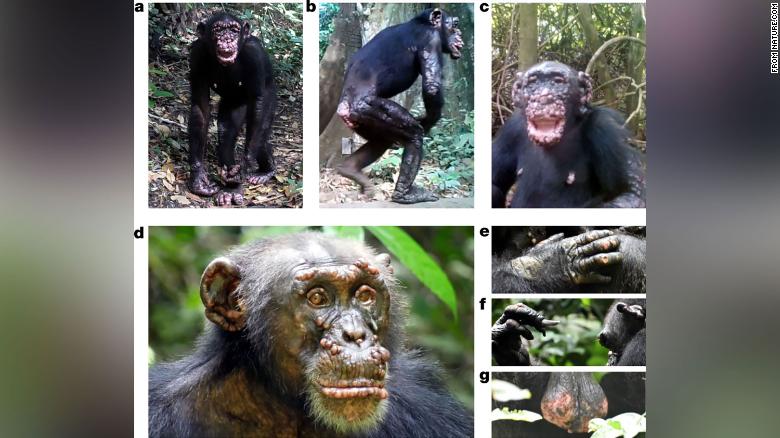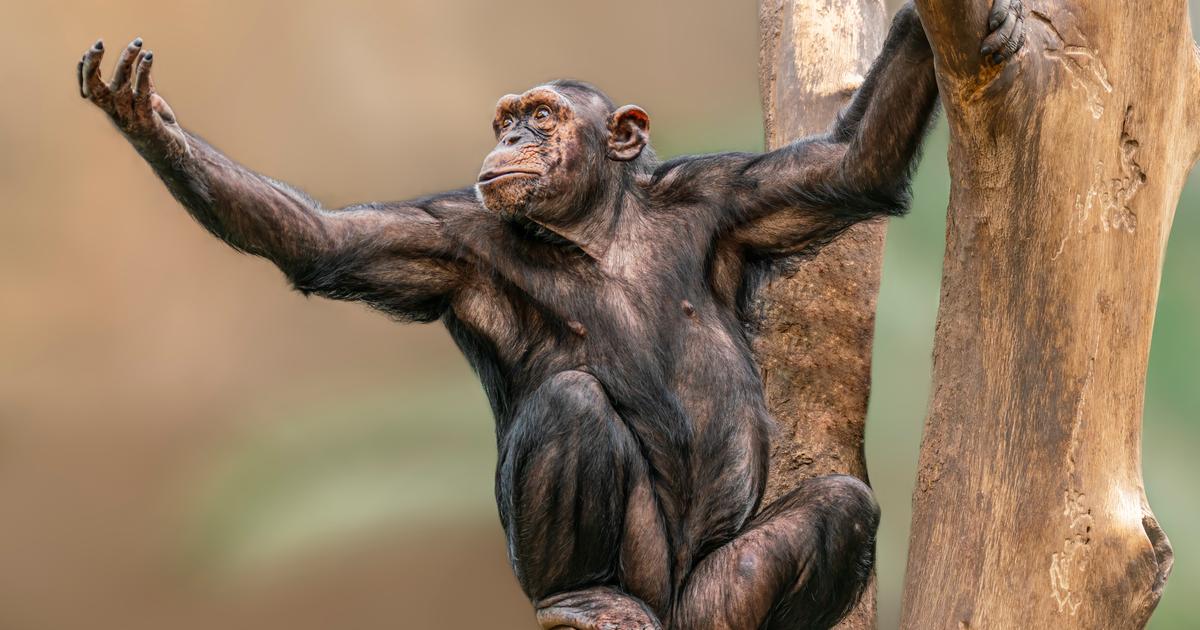(CNN) -
For the first time, cases of leprosy have been identified in wild chimpanzees, according to a new study, in findings that have astonished experts.
Cases of leprosy in chimpanzees were found in Guinea-Bissau and the Ivory Coast, making this the first time that cases of leprosy have been found in a non-human species in Africa, the researchers said in a study published Wednesday.
Leprosy is an infectious disease that can seriously damage the nerves, skin, and respiratory tract of humans.
It can lead to the development of lesions and nodules, as well as loss of sensation in the extremities and blindness.
Ndakasi, the beloved mountain gorilla who went viral for a photo, has died at 14
The scientists used camera traps to study chimpanzee behavior between 2015 and 2019. By looking at the images, the researchers found two males and two females with "severe leprosy-like lesions," according to the study.
The symptoms - similar to those experienced by humans - progressed over time.
"When I first saw the images of a chimpanzee with nodules and lesions on its face, I immediately realized that it was leprosy because it looked a lot like leprosy in humans," said Kimberley Hockings, senior lecturer in science. from conservation at the University of Exeter in the UK and one of the study's authors, told CNN on Thursday.
So far it is not known exactly how the chimpanzees were infected, but it is believed to have occurred as a result of exposure to humans or "other unknown environmental sources," according to the study.
advertising
These wild West African chimpanzees show physical symptoms of leprosy, including nodules and facial lesions.
Leprosy has been seen in wild animals before, such as red squirrels in the UK and armadillos in the Americas, but it was quite shocking to see that leprosy "shows up suddenly in chimpanzees because they are so well researched," Hockings noted.
He said more research will now be conducted on how wild chimpanzees came into contact with the disease and what it means for a species that is already at risk due to factors such as hunting and habitat loss.
Hockings added that the discovery concerned researchers and conservation efforts.
Treating leprosy in wild chimpanzees could prove challenging.
"Treatment of leprosy in humans is relatively straightforward, especially if it is diagnosed early enough," Hockings said.
Babies' laughing patterns match those of other species, new study finds
"But for animals that are not inhabited by humans, like these populations in particular, it is very difficult to administer antibiotics. There are limitations to treating animals for leprosy and we have to consider the ethical implications of shooting darts at chimpanzees, so the question of treatment is complicated. "
Hockings said he will incorporate the discovery into his broader research, which focuses on interactions between humans and great apes, as humans have traditionally been considered the main host for leprosy, and now it is suddenly showing up in wild chimpanzees. .
The research was published in the journal Nature.
Leprosy


/cloudfront-eu-central-1.images.arcpublishing.com/prisa/2I75T5NCTFFJTDKNAD4SDRCYKM.jpg)

/cloudfront-eu-central-1.images.arcpublishing.com/prisa/5TJR5HS6ZRH2JMMARS3NZA53JE.JPG)
/cloudfront-eu-central-1.images.arcpublishing.com/prisa/Y2JWUSXPBJDSHCI3OF3KQ7Z24I.jpg)



